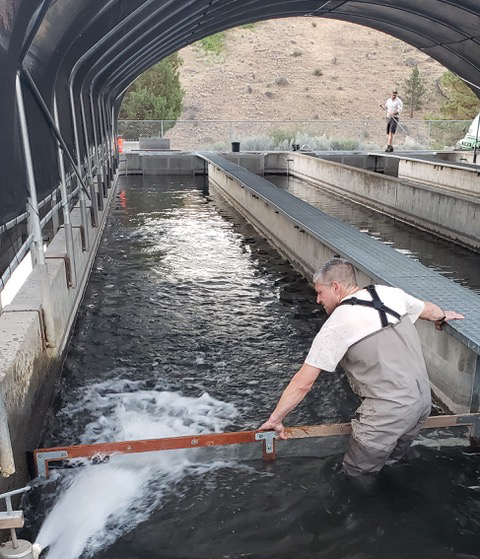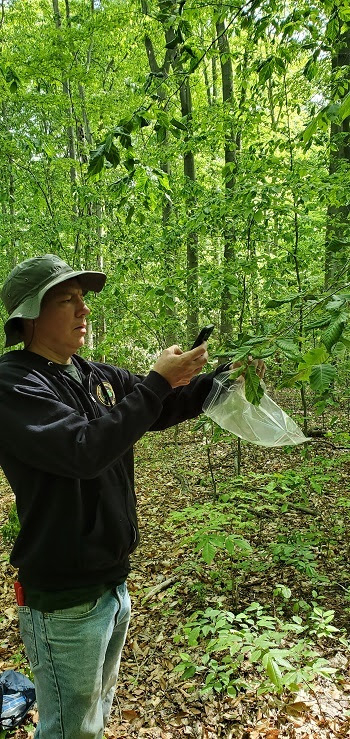DNR, federal agencies investigate Oregon company shipping illegal, uncertified
A bait supplier in Oregon has pled guilty and paid a $2,000 settlement for shipping uncertified Pacific herring bait into Michigan. The uncertified bait poses a disease risk to Michigan waters as it is a known carrier of viral hemorrhagic septicemia virus (VHSv).
In May, the Department of Natural Resources’ Great Lakes Enforcement Unit began investigating a tip that a sports shop in Saugatuck, Michigan, had received a shipment of Pacific herring from Crowes Bait in Oregon. Earlier in 2014, Crowes Bait had contacted the DNR Fisheries Division to inquire about Michigan’s requirements to ship Pacific herring into the state. When informed the bait would first have to be treated and certified as VHS-free by Michigan standards, Crowes Bait indicated to the DNR it would be too costly to sell the Pacific herring bait in Michigan.
That tip lead to an investigation of the Saugatuck sports shop, where conservation officers from the Great Lakes Enforcement Unit and from District 7 seized 273 packages of Pacific herring sold by Crowes Bait in containers that were labeled “worms.” Seized invoices provided evidence of the company name being changed from Crowes Bait to Oregon Bait after the company had contacted the department to inquire about certification standards.
DNR Great Lakes Enforcement Unit conservation officers contacted agents from the U.S. Fish and Wildlife Service and the National Oceanic and Atmospheric Administration and requested assistance to conduct interviews with officials from Oregon Bait in Oregon. Federal agents interviewed officials at the company who admitted to shipping the uncertified bait into Michigan in falsely labeled containers. Based on the investigation conducted by officers from the Michigan DNR’s Great Lakes Enforcement Unit, NOAA and the USFWS, NOAA’s Fisheries Office of law enforcement unit charged Oregon Bait and a $2,000 settlement was assessed.
The DNR also was assisted by the Molecular Ecology Lab at Michigan State University, where verification was made through DNA analysis that the bait shipped into Michigan was Pacific herring.
The sports shop in Saugatuck was not charged as the supplier had provided false information to the sports shop indicating that it was Michigan-certified bait.
“This case is a great example of how our Great Lakes Enforcement Unit works every day to protect the Great Lakes from disease and aquatic invasive species threats,” said DNR Law Enforcement Chief Gary Hagler. “Our officers responded quickly to this threat and helped lead a methodical investigation that resulted in a prosecution of a bait supplier trying to work around the rules – rules that were put in place to help protect our fisheries resource from further spread of VHS.”
VHS is an extremely serious viral disease of fresh and saltwater fish. It recently has spread into the Great Lakes region of the United States and Canada. VHS virus has been found in Lake Huron, Lake St. Clair, Lake Erie, Lake Ontario, Lake Michigan and the St. Lawrence River in New York. The virus also has infected several inland lakes in New York, Michigan and Wisconsin. The disease can cause large-scale fish kills and have severe economic consequences. For more information on the disease, go to www.michigan.gov/vhs.






